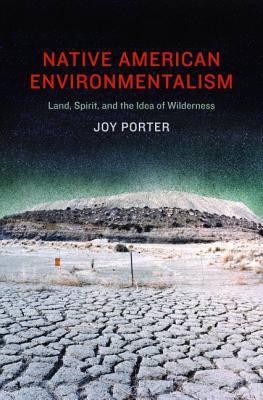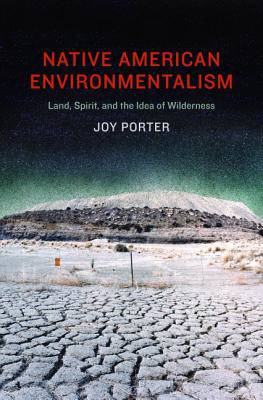
Bedankt voor het vertrouwen het afgelopen jaar! Om jou te bedanken bieden we GRATIS verzending (in België) aan op alles gedurende de hele maand januari.
- Afhalen na 1 uur in een winkel met voorraad
- In januari gratis thuislevering in België
- Ruim aanbod met 7 miljoen producten
Bedankt voor het vertrouwen het afgelopen jaar! Om jou te bedanken bieden we GRATIS verzending (in België) aan op alles gedurende de hele maand januari.
- Afhalen na 1 uur in een winkel met voorraad
- In januari gratis thuislevering in België
- Ruim aanbod met 7 miljoen producten
Zoeken
Native American Environmentalism
Land, Spirit, and the Idea of Wilderness
Joy Porter
Paperback | Engels
€ 45,95
+ 91 punten
Omschrijving
In Native American Environmentalism the history of indigenous peoples in North America is brought into dialogue with key environmental terms such as "wilderness" and "nature." The conflict between Christian environmentalist thinking and indigenous views, a conflict intimately linked to the current environmental crisis in the United States, is explored through an analysis of parks and wilderness areas, gardens and gardening, and indigenous approaches to land as expressed in contemporary art, novels, and historical writing.
Countering the inclination to associate indigenous peoples with "wilderness" or to conflate everything "Indian" with a vague sense of the ecological, Joy Porter shows how Indian communities were forced to migrate to make way for the nation's "wilderness" parks in the nineteenth century. Among the first American communities to reckon with environmental despoliation, they have fought significant environmental battles and made key adaptations. By linking Native American history to mainstream histories and current debates, Porter advances the important process of shifting debate about climate change away from scientists and literary environmental writers, a project central to tackling environmental crises in the twenty-first century.
Countering the inclination to associate indigenous peoples with "wilderness" or to conflate everything "Indian" with a vague sense of the ecological, Joy Porter shows how Indian communities were forced to migrate to make way for the nation's "wilderness" parks in the nineteenth century. Among the first American communities to reckon with environmental despoliation, they have fought significant environmental battles and made key adaptations. By linking Native American history to mainstream histories and current debates, Porter advances the important process of shifting debate about climate change away from scientists and literary environmental writers, a project central to tackling environmental crises in the twenty-first century.
Specificaties
Betrokkenen
- Auteur(s):
- Uitgeverij:
Inhoud
- Aantal bladzijden:
- 224
- Taal:
- Engels
Eigenschappen
- Productcode (EAN):
- 9780803248359
- Verschijningsdatum:
- 1/04/2014
- Uitvoering:
- Paperback
- Formaat:
- Trade paperback (VS)
- Afmetingen:
- 150 mm x 226 mm
- Gewicht:
- 317 g

Alleen bij Standaard Boekhandel
+ 91 punten op je klantenkaart van Standaard Boekhandel
Beoordelingen
We publiceren alleen reviews die voldoen aan de voorwaarden voor reviews. Bekijk onze voorwaarden voor reviews.









